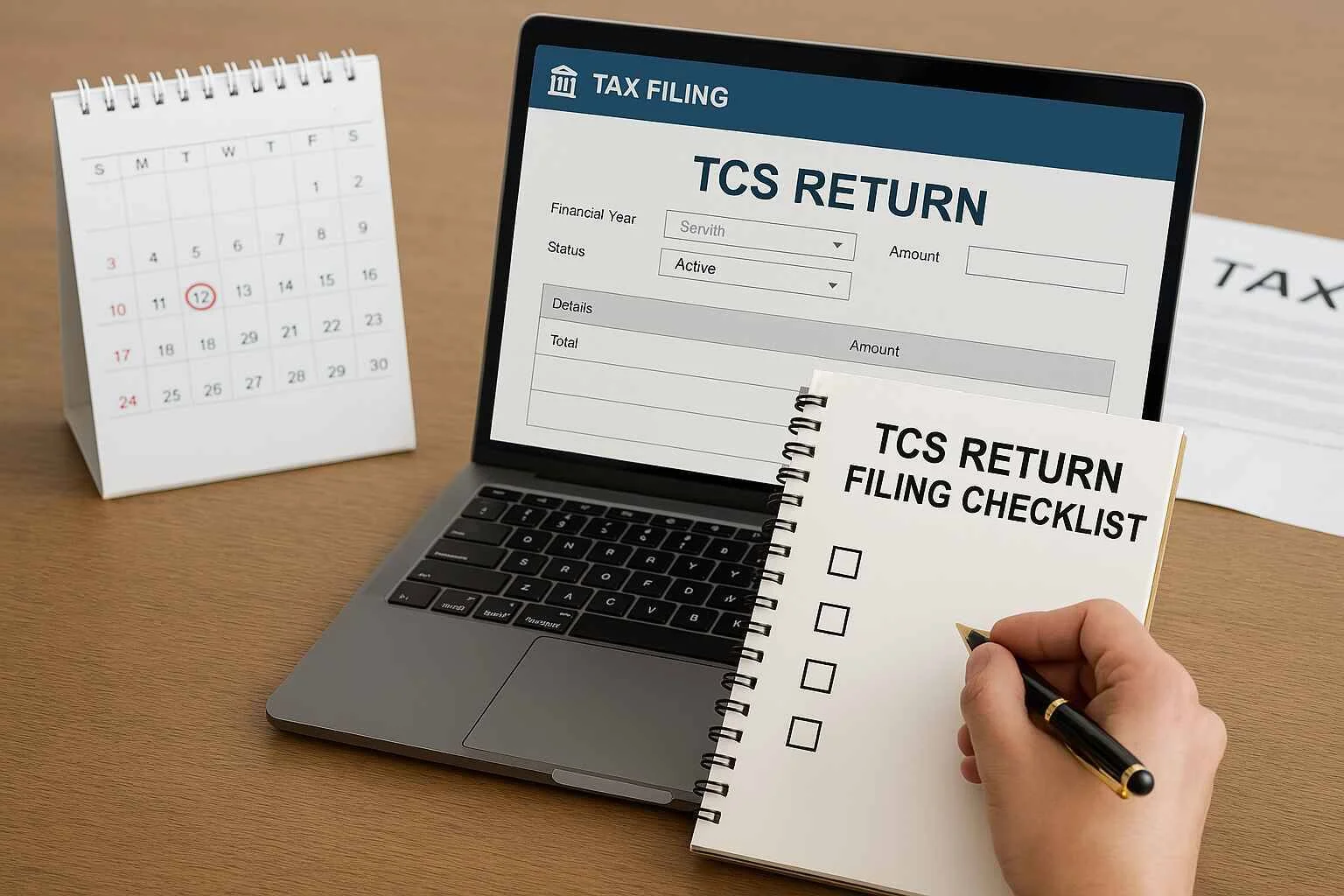Tax Collection at Source (TCS) is a crucial compliance requirement for businesses engaged in the sale of specified goods and services. The TCS return policy mandates businesses to collect tax at the time of sale and deposit it with the government. Non-compliance with TCS return filing can lead to penalties and legal consequences. Understanding the TCS return policy ensures that businesses remain compliant while avoiding financial risks.
In this blog, we will explore the TCS return policy, its impact on business compliance, and key strategies for seamless filing.
What is the TCS Return Policy?
The TCS return policy requires sellers to collect a percentage of tax from buyers and remit it to the government. The collected amount is then reported in quarterly TCS returns filed with the Income Tax Department.
Businesses must follow the provisions outlined under Section 206C of the Income Tax Act, ensuring timely deposit and accurate reporting of TCS returns. The TCS return policy applies to various transactions, including:
-
Sale of scrap
-
Sale of minerals
-
Sale of motor vehicles above ₹10 lakh
-
Foreign remittances above specified thresholds
-
E-commerce transactions
Failure to comply with the TCS return policy may lead to penalties, interest, and legal notices.
Importance of TCS Return Filing for Businesses
1. Avoiding Legal Penalties
Filing TCS returns on time is mandatory. Non-compliance results in penalties under Section 271H of the Income Tax Act. The penalty can range from ₹10,000 to ₹1,00,000 if a business fails to file the TCS return within the due date.
2. Maintaining Smooth Business Operations
The TCS return policy is essential for maintaining transparency in financial transactions. Proper compliance helps businesses build trust with stakeholders, customers, and regulatory authorities.
3. Seamless Tax Credit for Buyers
When businesses comply with the TCS return policy, the buyers can claim tax credit against their income tax liability. Any discrepancy in TCS return filing can lead to mismatches in buyers’ tax credits, causing disputes and unnecessary delays.
4. Ensuring Financial Planning and Stability
Accurate TCS return filing allows businesses to manage cash flow efficiently. Since TCS is collected at the time of transaction, businesses can plan their tax liabilities and financial statements without unexpected tax burdens.
Step-by-Step Guide to Filing TCS Returns
Step 1: Collect TCS from Buyers
As per the TCS return policy, businesses must collect TCS from buyers at the applicable rate. The tax is deducted at the time of payment or invoicing, depending on the nature of the transaction.
Step 2: Deposit TCS with the Government
The collected TCS must be deposited with the government before the 7th of the following month. Timely deposit ensures smooth processing of TCS returns and avoids interest on late payments.
Step 3: Prepare TCS Return (Form 27EQ)
The TCS return is filed using Form 27EQ, which includes:
-
PAN details of the buyer and seller
-
Total tax collected
-
Amount deposited
-
Challan details
Step 4: File TCS Return Quarterly
The TCS return policy mandates quarterly filing as per the following due dates:
-
April – June: 15th July
-
July – September: 15th October
-
October – December: 15th January
-
January – March: 15th May
Step 5: Verify and Validate the TCS Return
Before submission, businesses must validate the TCS return using the File Validation Utility (FVU) provided by the Income Tax Department. Any errors or mismatches must be corrected before filing.
Step 6: Submit TCS Return and Generate TCS Certificate
After filing, businesses must issue a TCS certificate (Form 27D) to buyers. This certificate serves as proof of tax collection and helps buyers claim credit while filing their income tax returns.
Common Challenges in TCS Return Filing
1. Incorrect PAN Details
Errors in PAN details lead to discrepancies in TCS return processing. Businesses should validate buyer PANs before filing returns to avoid notices from the tax department.
2. Delayed Deposits and Filings
Late deposit of collected TCS results in interest payments at 1% per month. Similarly, late TCS return filing leads to penalties. Businesses must adhere to the TCS return policy deadlines to prevent unnecessary financial burdens.
3. Mismatches in TCS Credit
Any mismatch between the TCS amount collected and the buyer’s tax credit claim can result in compliance issues. Businesses should ensure accuracy in TCS return reporting to avoid such problems.
Best Practices to Ensure Compliance with TCS Return Policy
1. Automate TCS Calculation and Reporting
Using accounting software with automated TCS calculation and TCS return filing features can reduce errors and improve compliance efficiency.
2. Maintain Proper Documentation
Businesses should maintain records of invoices, tax collection, and deposit challans. Proper documentation simplifies TCS return filing and helps in case of audits.
3. Conduct Regular Internal Audits
Regular audits ensure that TCS returns are filed accurately. Internal reviews help identify discrepancies before submission, reducing compliance risks.
4. Seek Professional Assistance
Engaging tax professionals or consultants ensures compliance with the latest TCS return policy regulations. Experts can provide guidance on complex transactions and help businesses avoid penalties.
Conclusion
Understanding the TCS return policy is crucial for businesses to maintain tax compliance and avoid legal issues. Timely filing of TCS returns, accurate reporting, and adherence to due dates help businesses operate smoothly and build credibility with stakeholders.
By following best practices, automating TCS processes, and seeking expert advice, businesses can ensure full compliance with the TCS return policy while optimizing financial efficiency. Filing accurate TCS returns is not just a legal requirement—it is a strategic step towards better financial management and sustainable business growth.
Source: https://twikkers.nl/blogs/394225/How-Does-the-TCS-Return-Policy-Impact-Your-Business-Compliance





